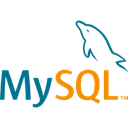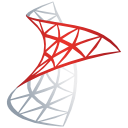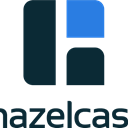Top Oracle TimesTen Alternatives for High-Performance In-Memory Databases
Oracle TimesTen is a powerful, memory-optimized relational database management system, renowned for its extremely low latency and high throughput. Designed for applications demanding real-time, consistent response times, TimesTen stores all data in RAM, eliminating the need for slow disk I/O. This makes it ideal for critical applications in telecommunications, financial trading, and large web services. However, despite its robust features, organizations often seek Oracle TimesTen alternatives due to licensing costs, specific deployment needs, or a preference for open-source solutions. This article explores some of the best alternatives that offer similar high-performance capabilities and relational database functionalities.
Leading Oracle TimesTen Alternatives
If you're looking to achieve similar speed and reliability without being tied to Oracle TimesTen, these alternatives provide a range of options, from open-source powerhouses to specialized in-memory solutions. Each has its unique strengths and may be a perfect fit depending on your project's requirements.

SQLite
SQLite is a self-contained, serverless, zero-configuration SQL database engine, making it an excellent lightweight Oracle TimesTen alternative. It's a free and open-source solution available across numerous platforms including Mac, Windows, Linux, Android, and iPhone. Its in-memory database feature and embeddable nature allow for fast, local data operations, similar to TimesTen's in-memory focus, though on a smaller scale.

PostgreSQL
PostgreSQL is a powerful, open-source object-relational database system that serves as a robust Oracle TimesTen alternative for those needing a full-featured RDBMS. Available for Free, Open Source, Mac, Windows, Linux, and BSD, PostgreSQL boasts over 15 years of active development. While not purely in-memory, its advanced caching and optimization features can provide excellent performance for database-intensive workloads, and it's highly extensible.

MySQL Community Edition
MySQL Community Edition is a widely adopted open-source relational database management system, making it a strong contender as an Oracle TimesTen alternative. Compatible with Free, Open Source, Mac, Windows, Linux, and BSD, MySQL, especially with its InnoDB storage engine, offers high performance and reliability. While it's primarily disk-optimized, proper configuration and sufficient RAM can yield impressive speeds for many applications.

MongoDB
MongoDB is a document database offering scalability and flexibility as a NoSQL Oracle TimesTen alternative. It's free and open-source, available on Mac, Windows, Linux, Web, and BSD. While not a relational database like TimesTen, its ability to store data in flexible JSON-like documents and its robust indexing and querying capabilities make it suitable for applications that prioritize rapid iteration and handling unstructured data, often with high performance.

Microsoft SQL Server
Microsoft SQL Server is a comprehensive relational database management system that serves as a commercial Oracle TimesTen alternative. Available for Freemium, Windows, and Linux, SQL Server offers robust features for managing structured and semi-structured data. Its in-memory OLTP capabilities provide performance levels comparable to TimesTen for specific workloads, making it a strong choice for enterprise environments already invested in the Microsoft ecosystem.

RethinkDB
RethinkDB is a free and open-source distributed database that pushes JSON to applications in real-time, making it an interesting Oracle TimesTen alternative for real-time web applications. Available on Mac, Windows, Linux, and BSD, RethinkDB's focus on real-time data push can offer performance advantages similar to TimesTen's low-latency focus, particularly for applications requiring live updates without constant polling.

Oracle Database
Oracle Database itself, the parent product, can be considered an Oracle TimesTen alternative for those who want to remain within the Oracle ecosystem but require a more traditional, disk-optimized relational database. As a Commercial product available on Mac, Windows, and Linux, it offers industry-leading performance, scalability, and reliability. While not exclusively in-memory, Oracle Database has extensive caching mechanisms and in-memory options (like In-Memory Database option) that can deliver high performance for many critical applications.

CockroachDB
CockroachDB is a free and open-source distributed SQL database that offers ACID transactional semantics and versioned values, making it a compelling Oracle TimesTen alternative for highly scalable and resilient applications. Available on Mac, Linux, and BSD, CockroachDB is designed for high availability and strong consistency, which can be crucial for workloads similar to those handled by TimesTen, especially in distributed environments.

H2 Database Engine
H2 Database Engine is a relational database management system written in Java, offering a lightweight and embeddable Oracle TimesTen alternative. It's free and open-source, compatible with Mac, Windows, and Linux. H2 can be run in client-server mode or embedded directly into Java applications, making it highly versatile for applications requiring an in-process, fast relational database, akin to TimesTen's embeddable and in-memory characteristics.

Hazelcast
Hazelcast is an open-source in-memory data grid based on Java, serving as a powerful distributed Oracle TimesTen alternative, particularly for in-memory database and caching needs. Available for Free, Open Source, Mac, Windows, and Linux, Hazelcast distributes data across multiple nodes, enabling high throughput and low-latency access, similar to TimesTen's performance profile but with a focus on distributed data processing and caching.
Choosing the right Oracle TimesTen alternative depends heavily on your specific application requirements, budget constraints, and team's expertise. Whether you prioritize pure in-memory performance, robust open-source features, scalability, or ease of integration, the alternatives listed above offer a diverse range of solutions to meet your database needs.